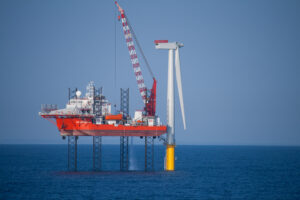
The sharp fall in the price of oil and gas will lead to a huge drop in revenue from the government’s windfall tax.
Announced in November of last year, the energy profits levy hiked an existing tax on oil and gas profits and extended its deadline until 2028. Chancellor Jeremy Hunt estimated that it would raise as much as £41.6bn.
However, according to the Treasury’s most recent forecasts from March, the estimated tax take has fallen almost 40 per cent to £26bn.
This reflects the steep decline in oil and gas prices, which in turn has dented the revenue of producers. Wholesale gas prices are almost 90 per cent lower than March of last year while oil prices have fallen to $75 a barrel from $130.
Although the government is expecting to receive less revenue from the levy, the loss is offset by an estimated £22bn fall in the cost of energy support schemes.
The Office for Budgetary Responsibility suggests the two schemes are expected to cost £34.2bn against an initial estimate of £56bn.
Under proposals announced earlier this month, Hunt introduced a price floor – $71.40 per barrel and 54p per therm – at which the windfall tax falls away.
The price floor only kicks in when prices fall below a threshold for at least six months.
The government’s own estimates suggest this won’t happen until March 2028, when the levy was scheduled to end in any case.
Speaking on the BBC this morning, Gilad Myerson, executive chair of Ithaca Energy, said the chances of such a drop were “extremely low” after changes in demand following Russia’s invasion of Ukraine.
“The taxation regime is changing constantly and it’s very difficult to invest huge amounts of capital when you don’t know what type of return you’ll be getting.”
He said Ithaca, which has stakes in six of the largest North Sea fields, was looking at investments in Europe and the US
Read more:
Windfall tax revenue set to slump 40 per cent thanks to falling oil and gas prices





